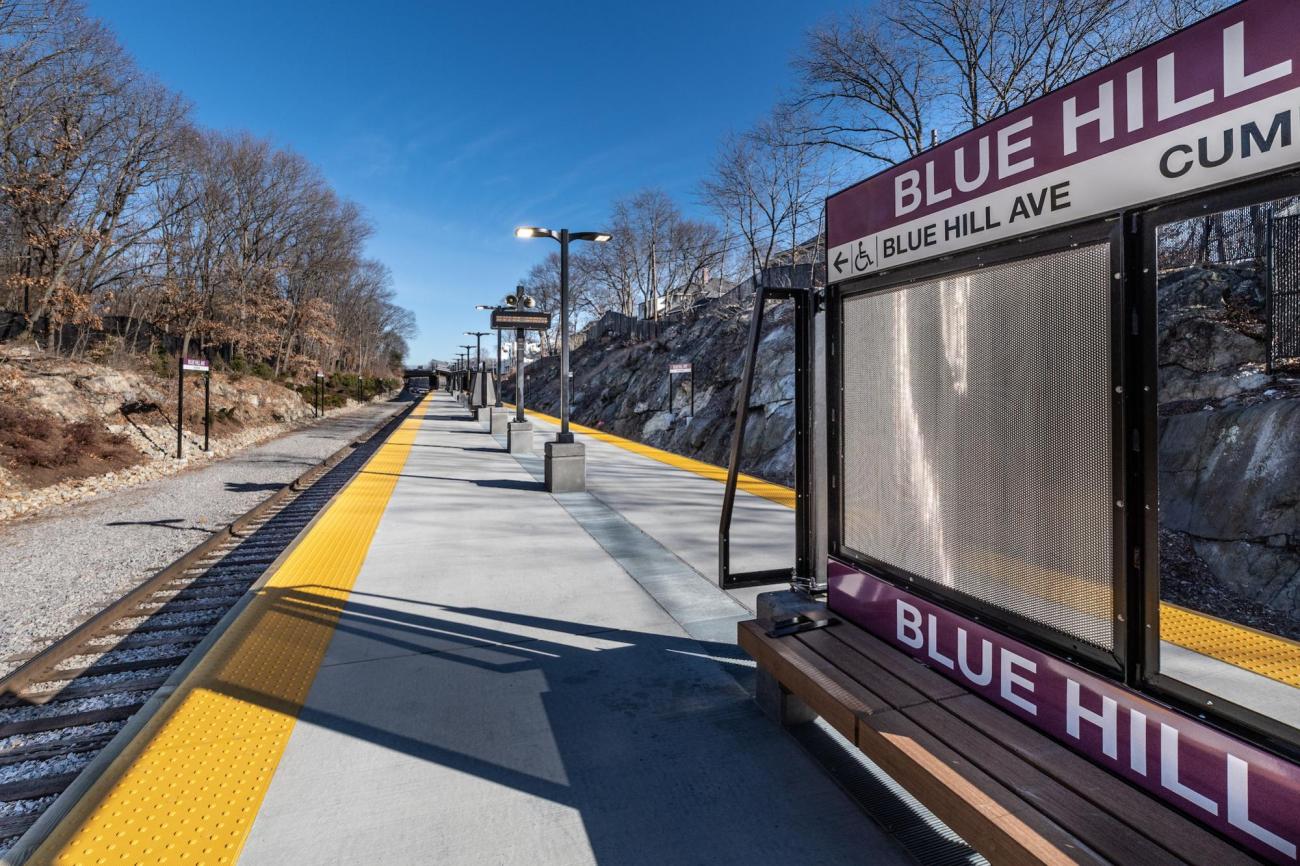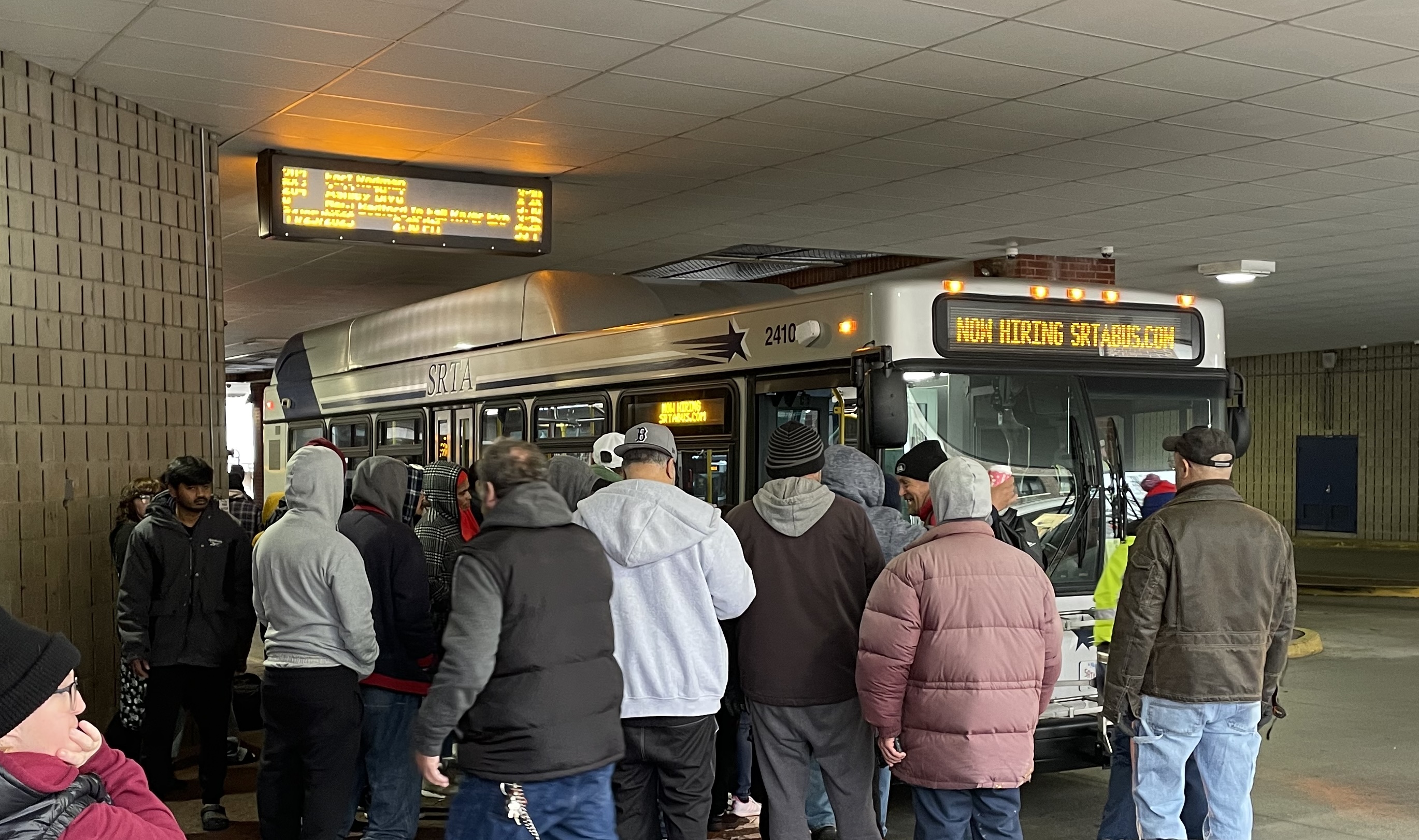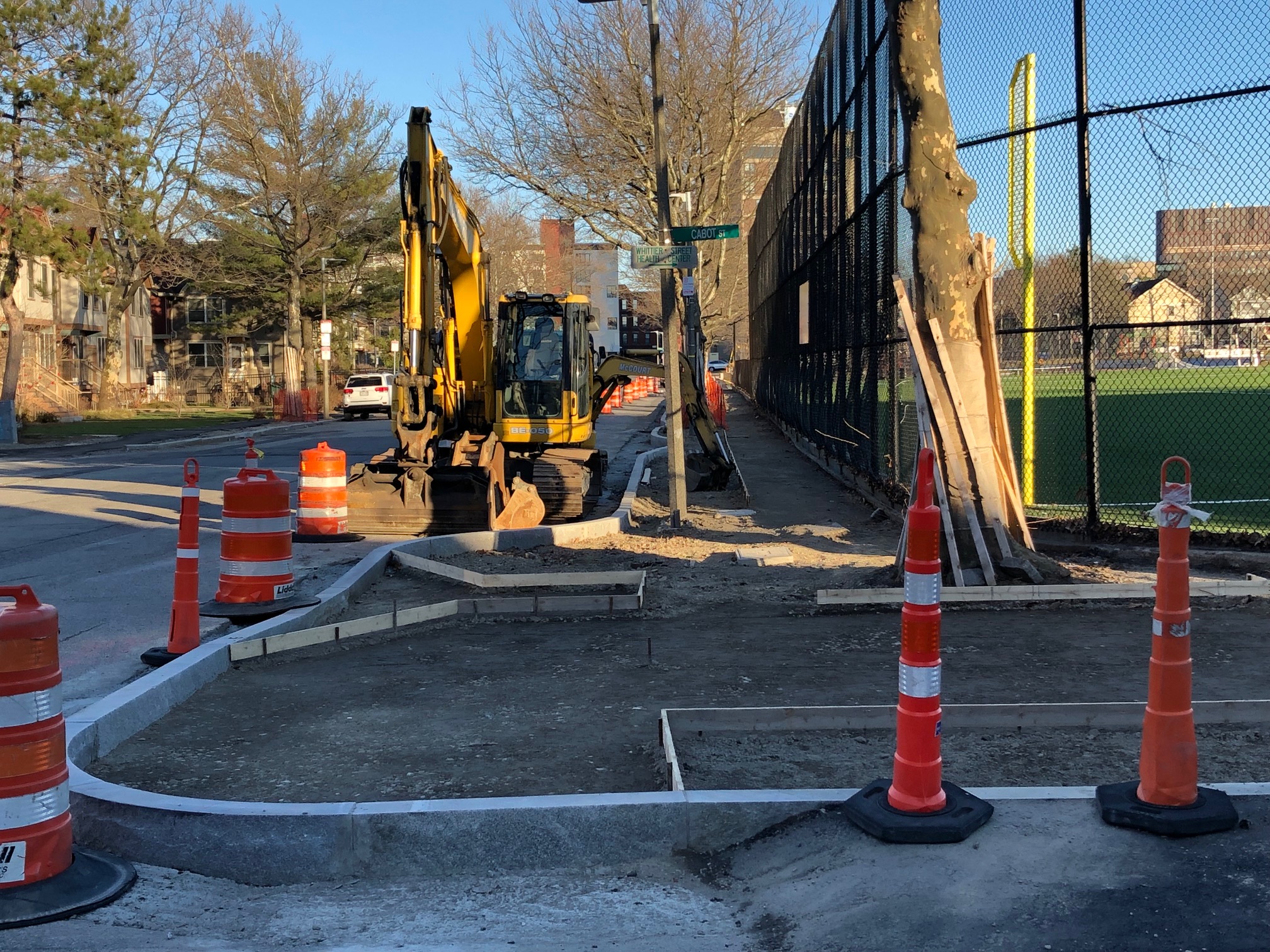Boston Mayor Marty Walsh joined members of Boston's legislative delegation and transit advocates at an MBTA board meeting on Monday to request additional weekday service on the Fairmount Line, a signature goal of the city's GoBoston 2030 transportation plan.
The City of Boston has proposed adding eight additional daily round trips to the Fairmount Line, where trains currently run every 45 to 60 minutes, in an application to the MBTA's pilot service enhancement program.
"All we have to do is look at a map of the system, and you can see areas in Boston with no subway service – areas of Dorchester, Roxbury, Mattapan and Hyde Park," said Mayor Walsh in his testimony Monday afternoon.
"It's the Fairmount Line that's a game-changer," continued Walsh. "It's our largest and most diverse neighborhoods that the Fairmount Line goes through. One-fifth of Boston's population lives along the nine-mile route of the Fairmount Line. 83 percent of those residents are residents of color. They need and deserve a better service."
The GoBoston 2030 plan called for the city and MBTA to "provide a more subway-like schedule (on the Fairmount Line) so that passengers can walk to the station and reliably expect train service in 15 or 20 minutes rather than every 45 to 60 minutes," and eventually to make additional infrastructure upgrades to allow subway-style service that runs every 10 minutes.
A clutch of transit advocates, including several members of the Fairmount Indigo Transit Coalition, also testified in favor of the city's proposal.
"Passenger growth is surging right now on the line, between the new stations that we successfully built and the free student passes that the city is giving out," Staci Rubin of the Conservation Law Foundation, which has been a longtime advocate of upgrading the Fairmount Line to provide subway-style service. "Right now the peak-hour trains that run 45 minutes apart are not OK... these neighborhoods have been overlooked for far too long."
Rep. Daniel R. Cullinane of Mattapan also testified in favor of the project, and urged the MBTA to add CharlieCard readers to Fairmount stations as well.
"We have an incomplete picture right now of who would ride if all obstacles were taken away," said Cullinane. "The fact that you have to buy two separate passes is an obstacle, even if it's the same price."
The MBTA is currently evaluating a range of pilot service proposals that municipalities and individuals submitted to the agency over the summer, and is expected to select pilots for implementation this fall or winter.
In a brief presentation, the Laurel Paget-Seekins, the MBTA's Assistant General Manager for Policy, suggested that the Board may want to evaluate pilot proposals sooner, so that the Fairmount Line project, if it were selected, could be enacted in time for the commuter rail system's regular schedule updates in the spring of 2020. To meet that timeline, the MBTA board will need to evaluate proposals and endorse a slate of pilot projects this fall.
The MBTA board also discussed its ongoing "Rail Vision" planning project on Monday afternoon with an analysis of ridership and cost projections for three "urban rail" concepts for the commuter rail network.
In his testimony at the beginning of the board meeting, Mayor Walsh also offered an endorsement of the "urban rail" concept from that study, which would upgrade commuter rail lines closer to the city to support all-day, 15-minute service frequencies and attract an estimated 47,500 new transit trips every day.
"Our residents don't only work in Boston; our workforce doesn't only live in Boston. We're part of a regional economy and a regional statewide transportation network," said Walsh. "We're calling on higher-frequency, all-day service on lines between Route 128 and downtown Boston, and we strongly support the electrification of the entire system."






